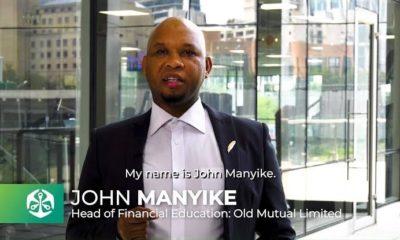News
Hidden Costs: How New Tax Laws Could Quietly Drain South Africans’ Savings

For many South Africans, saving through a unit trust or collective investment scheme (CIS) is one of the few practical ways to prepare for retirement, pay for a child’s education, or slowly build wealth. But new draft tax laws could turn those very savings vehicles into unexpected traps creating tax bills for investors even when they haven’t touched their money.
The warning signs
Top tax specialists at Webber Wentzel, Joon Chong and Graham Viljoen, have sounded the alarm over Treasury’s draft Taxation Laws Amendment Bill (TLAB). While Treasury frames the changes as “technical adjustments,” experts say the proposals effectively introduce a hidden, or “stealth tax,” that punishes long-term savers.
Under the current system, when two funds merge, investors simply exchange their units for new ones, and no tax event is triggered. The capital gain is only taxed once an investor decides to sell. That logic makes sense, it protects compounding and ensures savers aren’t penalised for decisions completely outside their control.
But the draft TLAB changes that. Suddenly, a fund merger would be treated as if investors sold their units, even though they remain invested. The result? A capital gains tax bill with no cash in hand to pay it.
“This is a classic example of a ‘dry tax’ a liability that arises without liquidity,” says Chong. “To cover it, investors may be forced to sell part of their new units, chipping away at their long-term asset base.”
Why it matters for ordinary South Africans
It’s no secret that South Africa has a fragile savings culture. Less than 6% of South Africans can retire and maintain their standard of living. In this context, policy should encourage saving, not complicate it.
But with these proposals, an investor saving for their child’s university fees or building a retirement pot could be taxed simply because their fund manager realigned portfolios or merged funds, commercial decisions made for efficiency, not tax avoidance.
Treasury’s reasoning and the backlash
Treasury argues that certain rollover tax reliefs have been abused in other contexts, such as when investors transfer listed shares into a CIS and the fund later sells them without triggering capital gains at the investor’s level. To prevent loopholes, Treasury has opted to remove tax-neutral rollover relief for all CISs, not just closely held funds.
Industry experts say this is overkill. A more measured approach, targeting specific abuse cases, would have sufficed. Instead, the blanket approach risks undermining confidence in CISs, one of the most widely used vehicles for ordinary South Africans to save.
Public and industry reaction
On social media, early reactions have been sharp. “Government talks about encouraging us to save, then turns around and taxes us before we even cash out. How is this fair?” one frustrated user wrote on X (formerly Twitter).
Financial advisors, too, are worried. Many argue that these hidden tax events will make it harder to convince South Africans already skeptical of long-term financial products to commit to disciplined saving.
A stealth tax by another name
What makes this proposal particularly unpopular is its indirect nature. Investors won’t see a straightforward tax increase in their payslips; instead, they’ll feel it quietly, when fund mergers or distributions trigger unexpected tax bills. Over time, that erodes not just individual portfolios, but also public trust in savings policy.
As Webber Wentzel points out: “These proposals penalise investors for corporate decisions beyond their control and undermine the compounding principle that makes collective investments attractive.”
South Africa’s economic outlook is already tough, stagnant growth, high unemployment, and a cost-of-living squeeze. Savings vehicles like CISs have been one of the few accessible tools for households to build resilience. A policy shift that complicates or penalises this could have long-term consequences far beyond tax revenue.
If Treasury wants to plug gaps in the tax net, it may need to balance its enforcement with the urgent need to strengthen not weaken, the country’s savings culture. Because in a nation where so few can afford retirement, the last thing South Africans need is another reason to distrust the system meant to secure their futures.
{Source: BusinessTech}
Follow Joburg ETC on Facebook, Twitter , TikTok and Instagram
For more News in Johannesburg, visit joburgetc.com



























